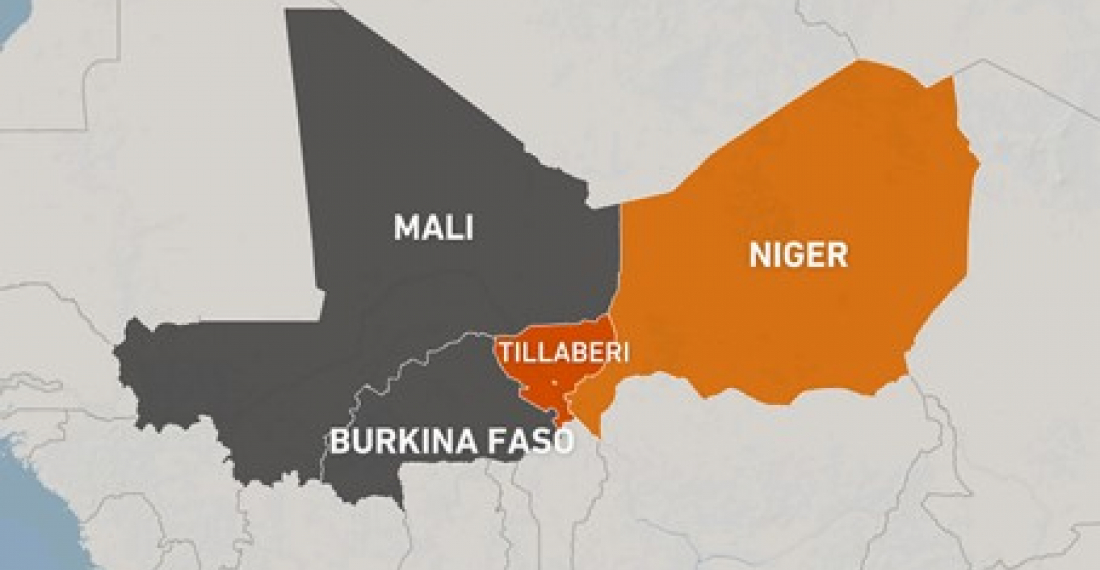An estimated 18 civilians were killed Sunday in western Niger, where suspected jihadists attacked a truck in a region frequently targeted by Islamist insurgents, the Nigerian government announced on Tuesday.
According to a statement by the Ministry of the Interior aired on national television, the attack was carried out near Mali, in the region of Tillabéri, in the so-called "three borders" zone, and was allegedly perpetrated by “armed bandits, aboard several motorcycles, who have not yet been identified”.
The Interior Minister Alkassoum Indatou said thirteen of the victims were from the village of Foney Ganda and five from the village of Tizegorou.
In 2021, presumed jihadists launched a series of particularly violent attacks on civilians in their villages and fields in the Banibangou area. On 2 November, at least 69 members of a vigilance committee – which is a self-defence militia - led by the mayor of Banibangou, were massacred by gunmen. A month earlier, near Tizigorou, assailants on motorbikes killed ten people in a mosque during evening prayer.
The immense region of Tillabéri in Niger, with a territory larger than Portugal with its 100,000km2 located in the tri-border area with Burkina Faso, Mali and Niger, has had to face repeated deadly attacks by various terrorist groups since 2017. These groups are primarily the Islamic State in the Greater Sahara (ISGS) in the west, and Boko Haram and the Islamic State West Africa Province (ISWAP) in the south-east, bordering Nigeria.
The Government of Niger, the world's poorest country according to the UN's Human Development Index, has launched large-scale free grain distributions to farmers affected by a severe food crisis caused by attacks and drought.
Niger, and particularly its region Tillabéri, is suffering from the difficulty its neighbour Mali has had in containing the assaults of terrorist groups on its territory since 2012, assaults that have since spread to Burkina Faso and Niger.
It is in this key region of Tillabéri, given its geographical position, that part of the French Barkhane and European Takuba armed forces could be redeployed after their imposed withdrawal from Mali.
Sources: CommonSpace.eu with Reuters (London), Al Jazeera (Doha), TV5 Monde (Paris) and other media outlets
Picture: A map of the geographical position of the region of Tillabéri ; Twitter: @Globalnews878







